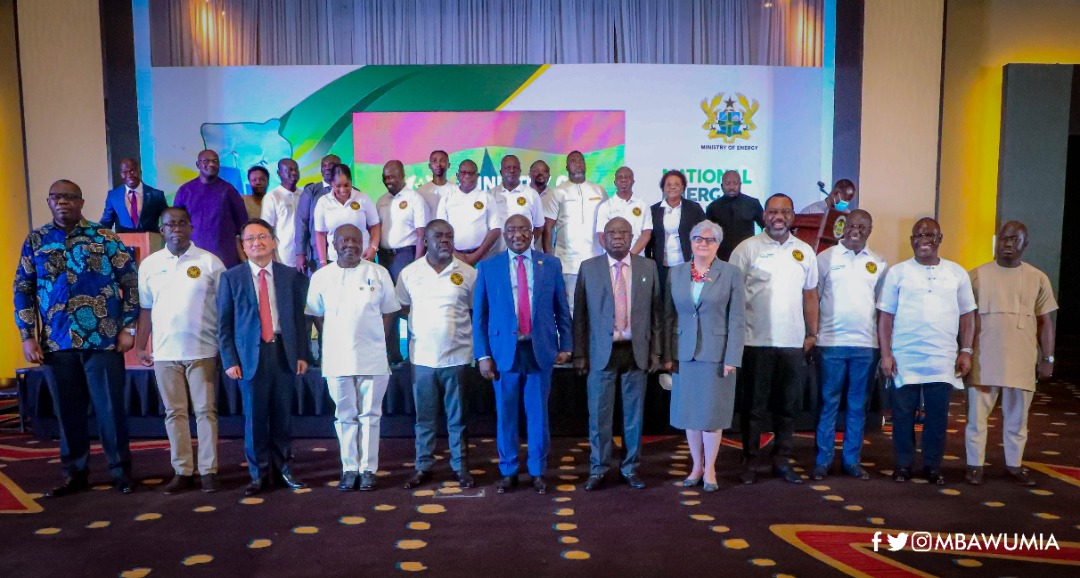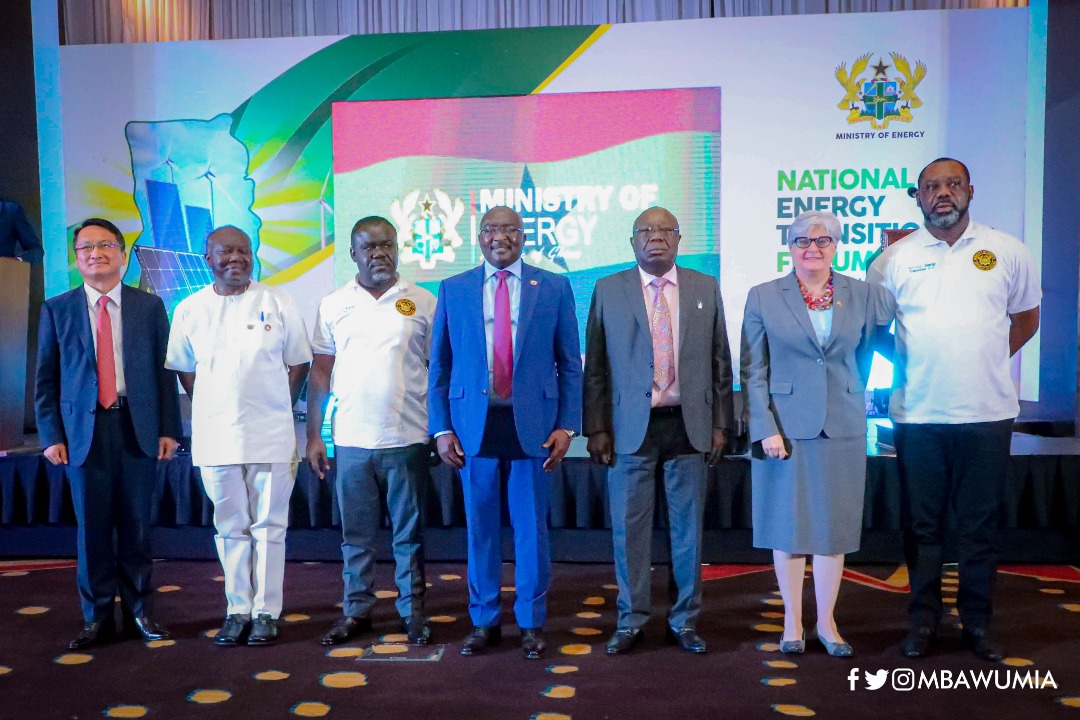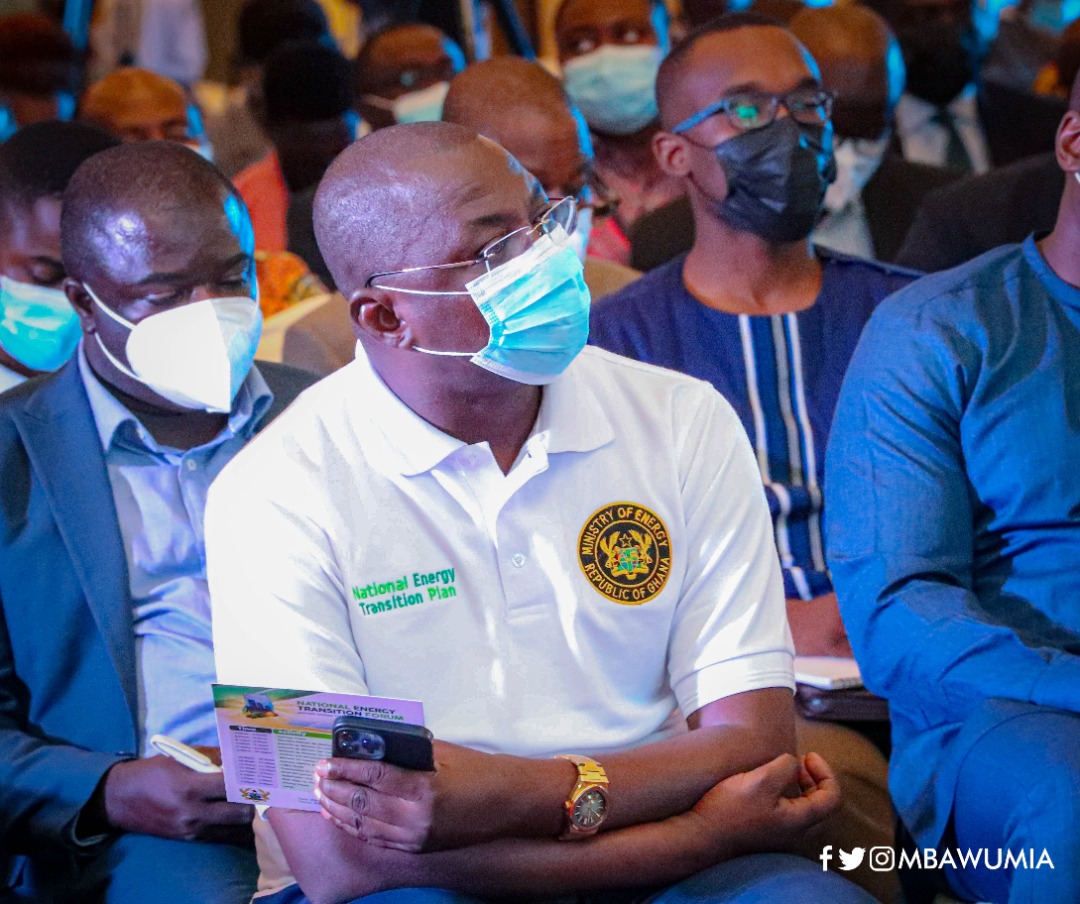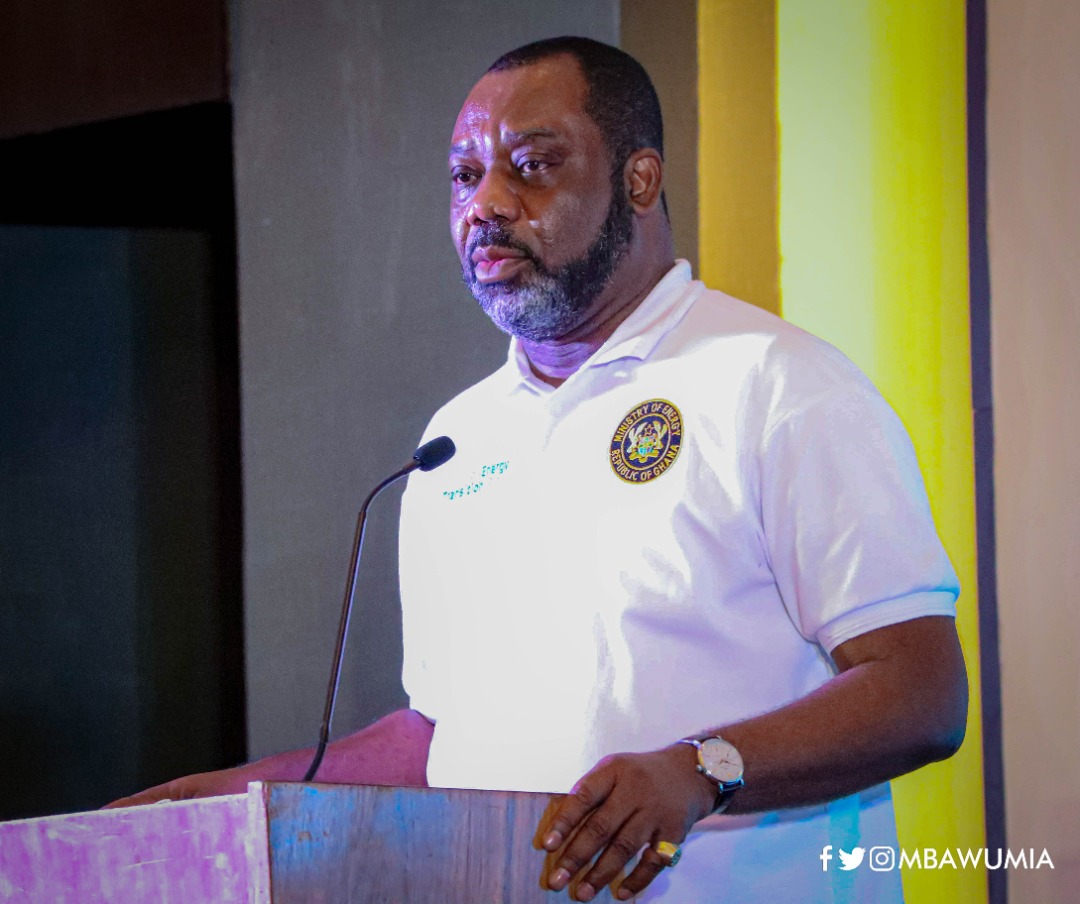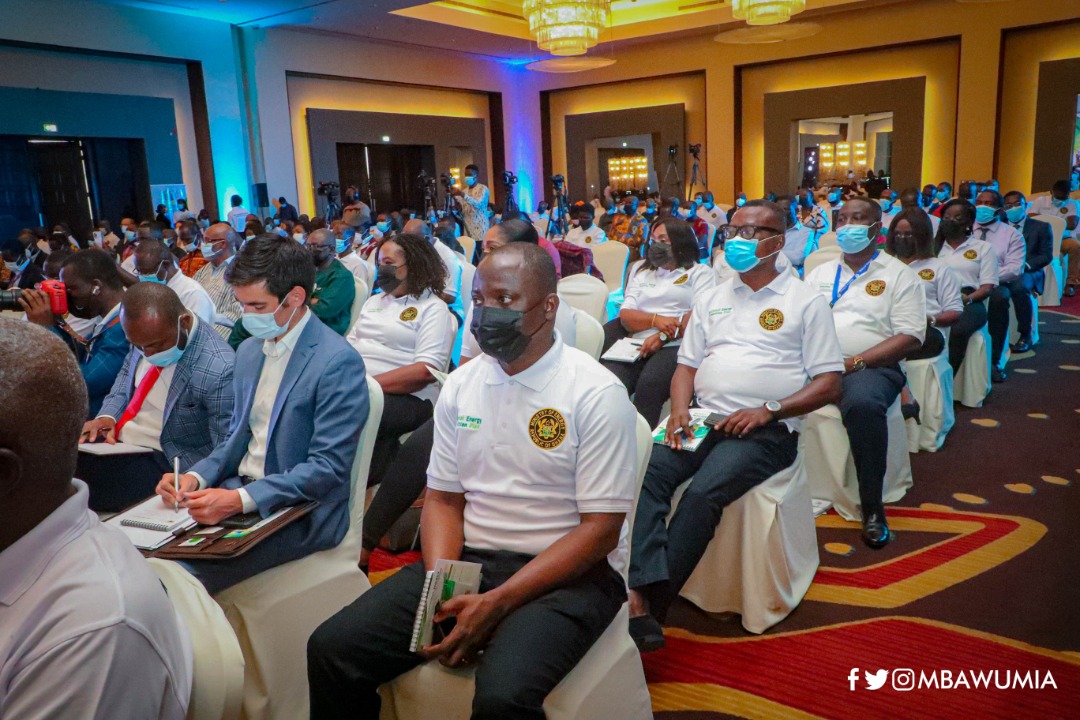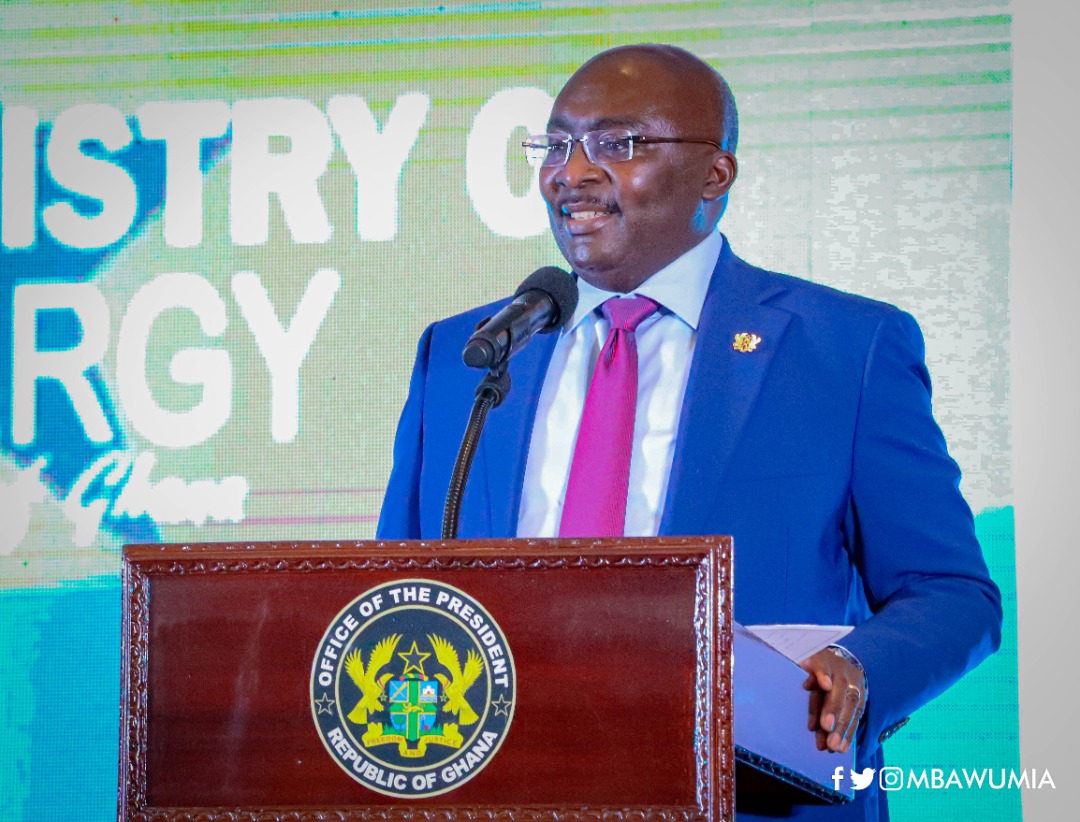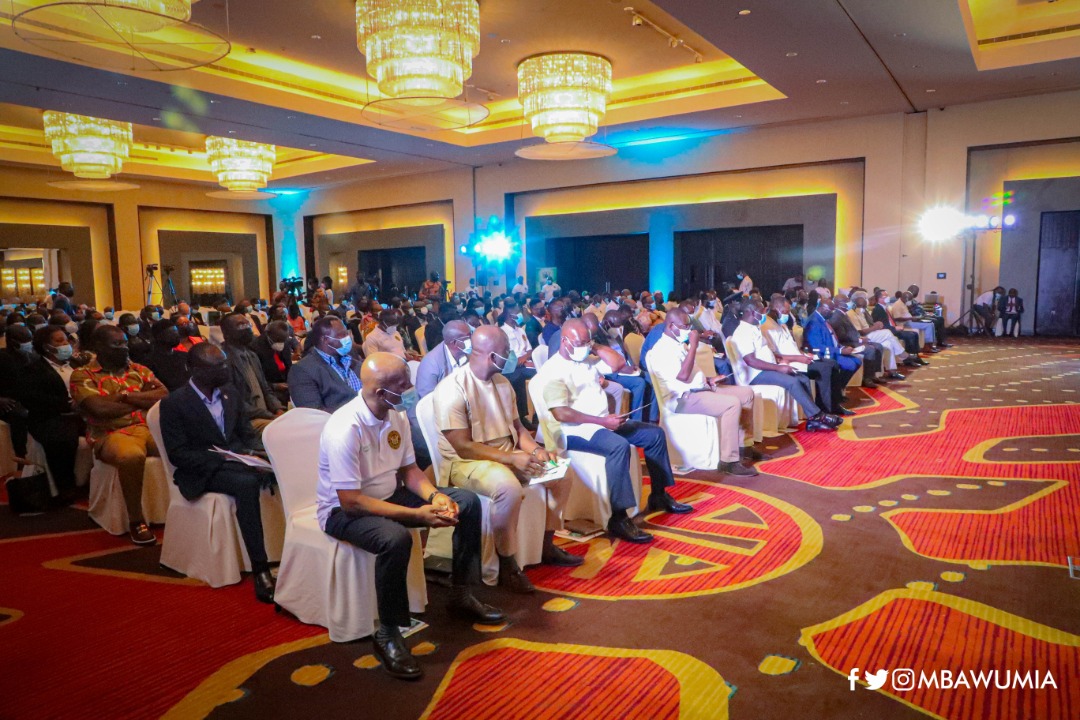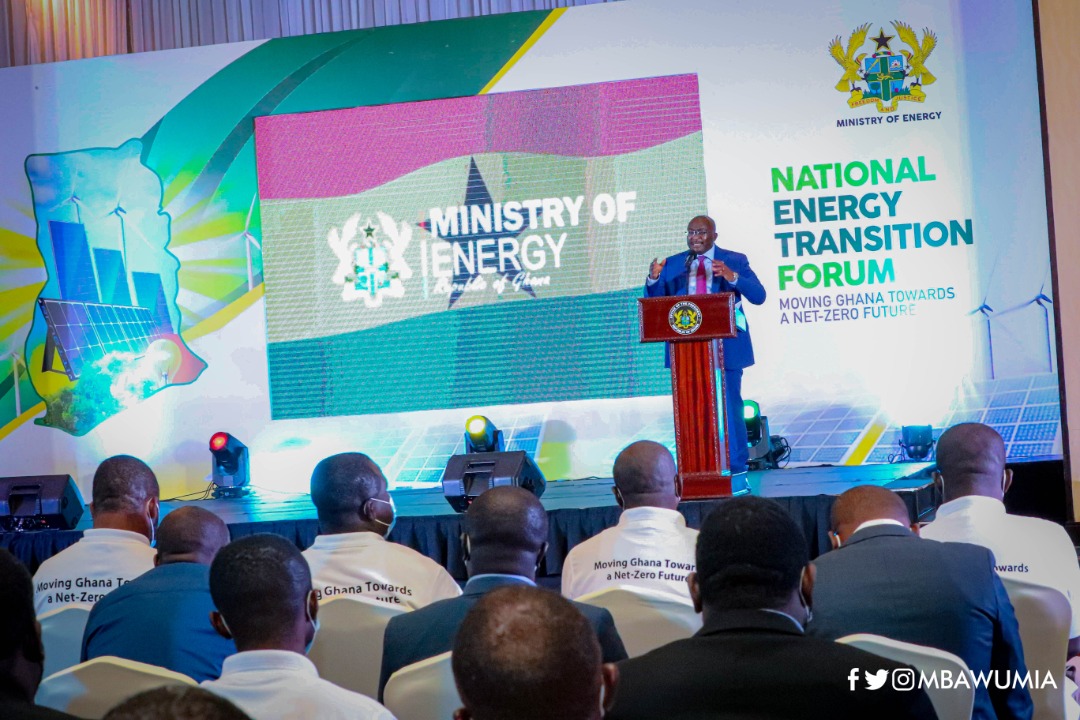Salutations
- Hon. Minister of Energy,
- Hon Minister for Transport,
- Hon Minister for Environment, Science, Technology, and Innovation
- Hon Minister for Finance,
- Hon Deputy Ministers of State,
- Chief Executive Officers of the Energy Agencies,
- Members of the Diplomatic Corps,
- Representatives from Civil Society Organizations,
- Representatives of Development Partners,
- Distinguished Guests,
- Friends of the Media,
- Distinguished Ladies and Gentlemen.
It is a delight to join you this morning as we gather here to deliberate on the very important, emerging global issue of energy transition.
I would like to welcome other stakeholders joining us from other parts of the region.
In recent times, the effects of global warming are becoming increasingly evident in our eyes today as we have seen the changes in weather patterns and other natural disasters both in their frequency and in magnitude. Whether it is in ice melt, floods, drought, hurricanes, the impact is becoming more evident every day.
Most urgent is the impact on agriculture, crop adaptation and the entire food chain. It is becoming more urgent for us to take the necessary actions towards slowing down this dangerous phenomenon that puts our planet at risk. The obvious way to addressing this problem is by reducing greenhouse gas emissions which are the main cause of global warming.
Ladies and Gentlemen, it is estimated that the way in which we produce and use energy accounts for more than 80% of the total greenhouse gas emissions. Although we still need the energy to improve our economy, it has become imperative that we reduce emissions from production and the use of energy by replacing high emitting fuels, particularly fossils with sustainable fuels, such as renewables.
The end goal of such an effort is to achieve net-zero carbon emissions. This effort of changing or moving away from energy produced from fossils to energy produced from renewables and other clean and high-efficiency sources is what we term energy transition.
Ladies and Gentlemen, in a statement at the 2021 United Nations Climate Change Conference (COP 26), in Glasgow, Scotland to world leaders, His Excellency President Nana Addo Dankwa Akufo-Addo acknowledged the effects of Climate Change, and the urgent need to combat it. He also stressed the importance of protecting our development. In as much as we want to contribute to reducing emissions, we must strike a fine balance among our social, economic and environmental requirements.
The transition cannot be left to a default considering that much of our production systems are currently fossil-fuel based. Moreover, we need to find solutions or pathways that are equitable and fair considering that some countries have emitted so much carbon in their development process. Others, especially those at the onset of their development have emitted negligible quantities and are likely to scale up in pursuit of their development goals. We want to make a conscious effort to ensure that Ghana continues its development agenda but in an environmentally safe and friendly manner that leads to a Net Zero Emissions outcome.
Ladies and Gentlemen, we are here today, to discuss the solutions that we think will be fair in the energy transition process, solutions that will not put our production systems at risk.
As you all may be aware, Ghana is a signatory to the Paris Agreement and eight out of our nineteen Nationally Determined Contribution policy actions center on energy. This means we are aware of the huge responsibility to cut emissions and make gains from the energy sector in our efforts.
Our party manifesto on which basis we sought and obtained the mandate of Ghanaians to manage this country captures our commitment to renewable energy in the following words:
“To increase the proportion of renewable energy in the national generation mix by harnessing alternative energy options to ensure the expansion of low carbon energy in our economy.”
The Honorable Minister for Energy, Dr. Matthew Opoku Prempeh on 21st December 2021, inaugurated the National Energy Transition Committee to prepare a plan that will guide Ghana’s process. As part of its activities, the Committee is conducting nationwide stakeholder consultations to solicit inputs from Ghanaians.
This forum is the first of such engagements which will continue to six other regional belts in the country. I urge you to provide meaningful contributions that will serve as input for the preparation of the plan.
We all have to be aware that this transition is going to take place over the next 30 years, but the costs of that transition are being felt today. There is less and less funding available for oil exploration and exploitation, and we are seeing this in an increase in oil prices globally. We in the developing countries are facing these very high costs of petroleum prices, and that is resulting in many economic impacts such as inflation as prices of goods increase in response to the increase in petroleum prices.
There are many who have said that the petroleum price increase is going to remain at the high levels; we are not going to see any major declines. How do we as developing countries like Ghana adjust to this new reality, if it becomes a new normal of high oil prices and its impact on the macro variables in our respective economies? It is very clear that we need a plan.
In a bid to transition smoothly, Ghana must seek to increase its natural gas-based electricity generation. We shall also harness the use of our gas resources by expanding gas pipelines to key demand centers across the country and increase access to LPG for cooking in households.
We shall increase the share of modern renewable energy (wind, solar, Waste to Energy, Small/Medium hydropower, hydrogen, etc.) in the national energy mix.
Government shall take steps to promote clean energy sources including biofuels, Compressed Natural Gas (CNG), Electric, Hydrogen fuels, etc. as fuels for vehicles and provide low-carbon and highly competitive energy supply to establish Ghana as an energy and e-mobility hub for the West African Sub-Region.
We are committed to creating a vibrant biomass energy market that integrates land use for afforestation, smart bioenergy production, packaging and transportation, end-user technologies investment and performance-based management environment that maximizes benefits for public and private sector investors. Nuclear is another clean energy area we will be considering, and we will do so by implementing the national nuclear energy roadmap and action plan.
Ladies and gentlemen, it is common for citizens to think such occurrences will not affect them, but energy transition will impact all other sectors of our economy and our everyday lives.
In certain places where energy transition is being implemented, people have felt alienated by such policies, and they perceive these policies as elitist. Such persons have the feeling that the elites are out of touch with their lives and are not aware or do not care about what really matters to them.
We, therefore, need everybody to be on board if we are to succeed in this quest. We need to develop plans and implement options that people can relate to or be comfortable using. Consequently, it is imperative that we listen to the people on how they want energy transition to occur.
I commend the Ministry of Energy for using this approach and I am hopeful that at the end of the day the new options that we implement will improve the lives of our people rather than hit the pockets of the poor. We should give equal opportunities to all citizens to enjoy the benefits of energy transition and ensure social justice in the process.
Our sub-region has similar challenges; and as a leader in the provision of energy to our neighbors any transition strategies adopted by Ghana will have an effect on our sub-regional neighbours.
I am therefore encouraging the Ministry of Energy to extend these consultations to our regional stakeholders to incorporate the risks and opportunities the transition offers us as a group.
It is also perhaps important for ECOWAS to begin to consult on the need for a sub-regional energy transition plan based on our individual countries’ plans. As chairman of ECOWAS, President Nana Addo Dankwa Akufo-Addo will champion this initiative of ensuring that the West African sub-regional area makes the best out of the global energy transition.
Ladies and Gentlemen, let us use this forum to brainstorm on ideas that will provide the best and fair options in energy transition for Ghana in its bid to combat the effects of Climate Change. Let us do this to contribute to saving mother earth for ourselves and for our future generations.
I thank you all for your attention, God bless Ghana, God bless us all.
